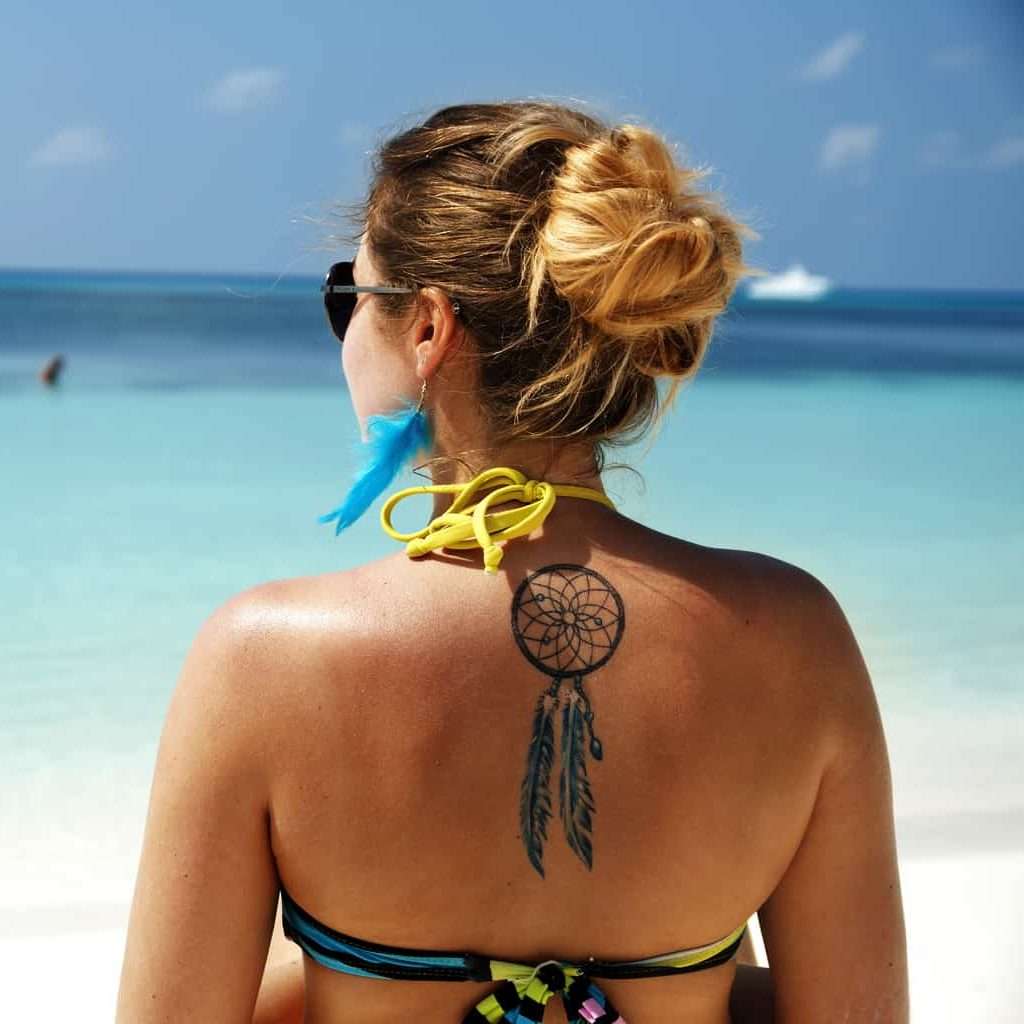
People have been wearing, painting or tattooing symbols of protection on their bodies for centuries. These symbols were often linked with divine beings:
- Norse Vikings wore the Helm of Awe on the front of their battle helmets to strike fear into the heart of their enemy.
- Ancient Egyptians painted the Eye of Horus on their ships and buried their pharaohs wearing an Eye of Horus amulet. This was to give protection and ward off evil spirits on the journey across the sea and into the afterlife. Evil eyes are still found throughout the world.
- Hamsa, a palm-shaped amulet seen in jewelry or henna tattoos. The Hamsa offers the hand of protection and is popular in the Middle East.

Dreamcatchers may not immediately spring to mind as objects of protection. But according to traditional Native American customs they catch bad dreams in their webs whilst people sleep.
The popularity and endurance of these symbols show how much humans gain comfort from wearing these signs.
In some societies, it is still traditional to use the symbols in everyday life. It is more common in today’s global and interconnected cultures to see these symbols as tattoos.
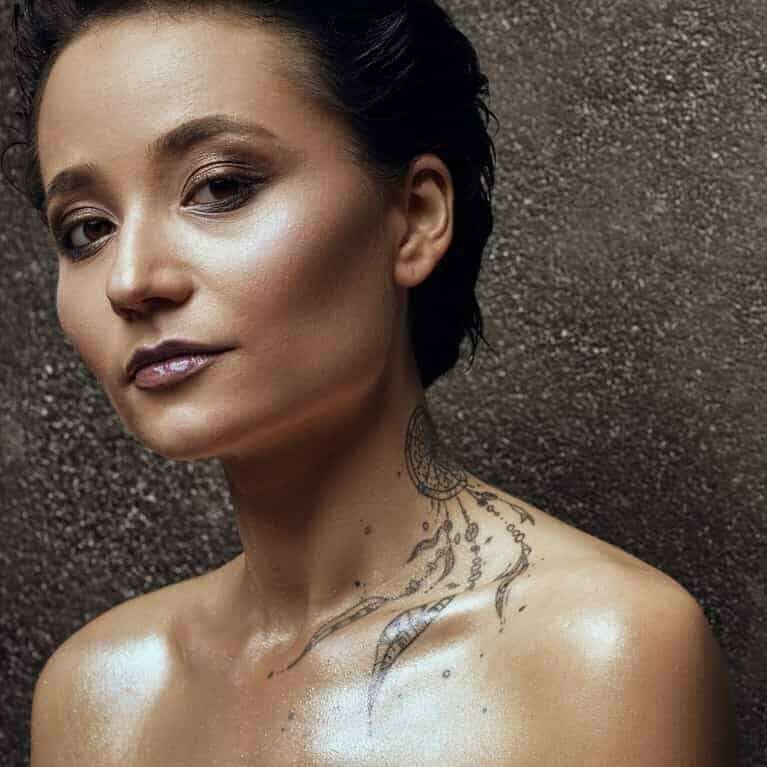
For anyone thinking of getting a tattoo, it is worth considering what it represents. An attractive design is important, but it is easy to research symbols and their meanings. Time invested in research helps to identify a tattoo design that is beautiful and meaningful.
Dreamcatcher History and Meaning
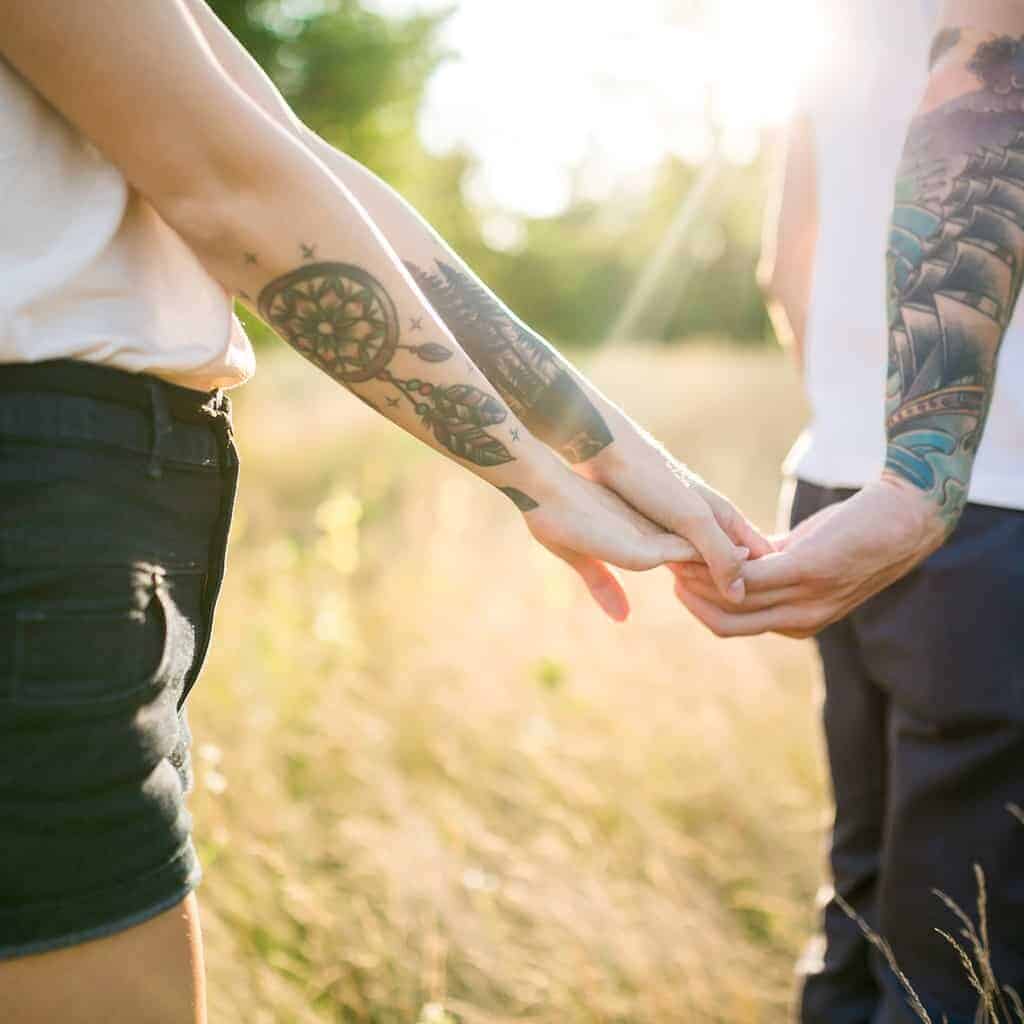
A Native American tribe the Ojibwe people (also called Chippewa) made the first dreamcatchers.
Using willow wood hoops usually only a few inches in diameter, the center of the dreamcatcher is traditionally woven into a web. The Ojibwe used natural products (animal sinew or plant cordage).
Dreamcatchers were often decorated with objects sacred to the tribe, such as beads or feathers. These decorative items were usually hung from the bottom of the dreamcatcher.
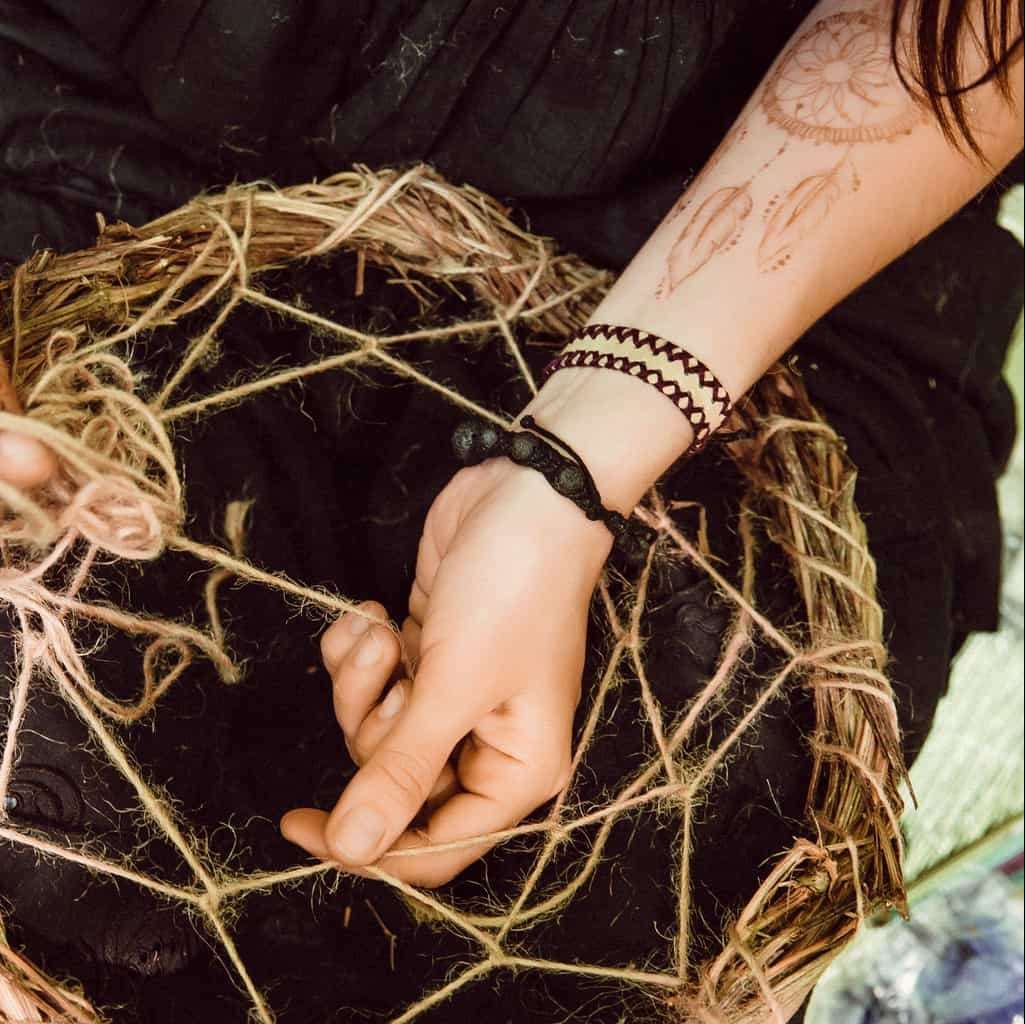
Some dreamcatchers have a single bead trapped in the web. This represents the spider, central to the legend of the dreamcatcher.
A spider might make some people shudder, but the Ojibwe people held spiders in reverence. They believed that the arachnid symbolized comfort and protection.
The Ojibwe tribe’s spiritual protector was a maternal figure known as the Spider Woman. This mystical spirit watched over babies and children, as the youngest and most vulnerable members of the tribe.
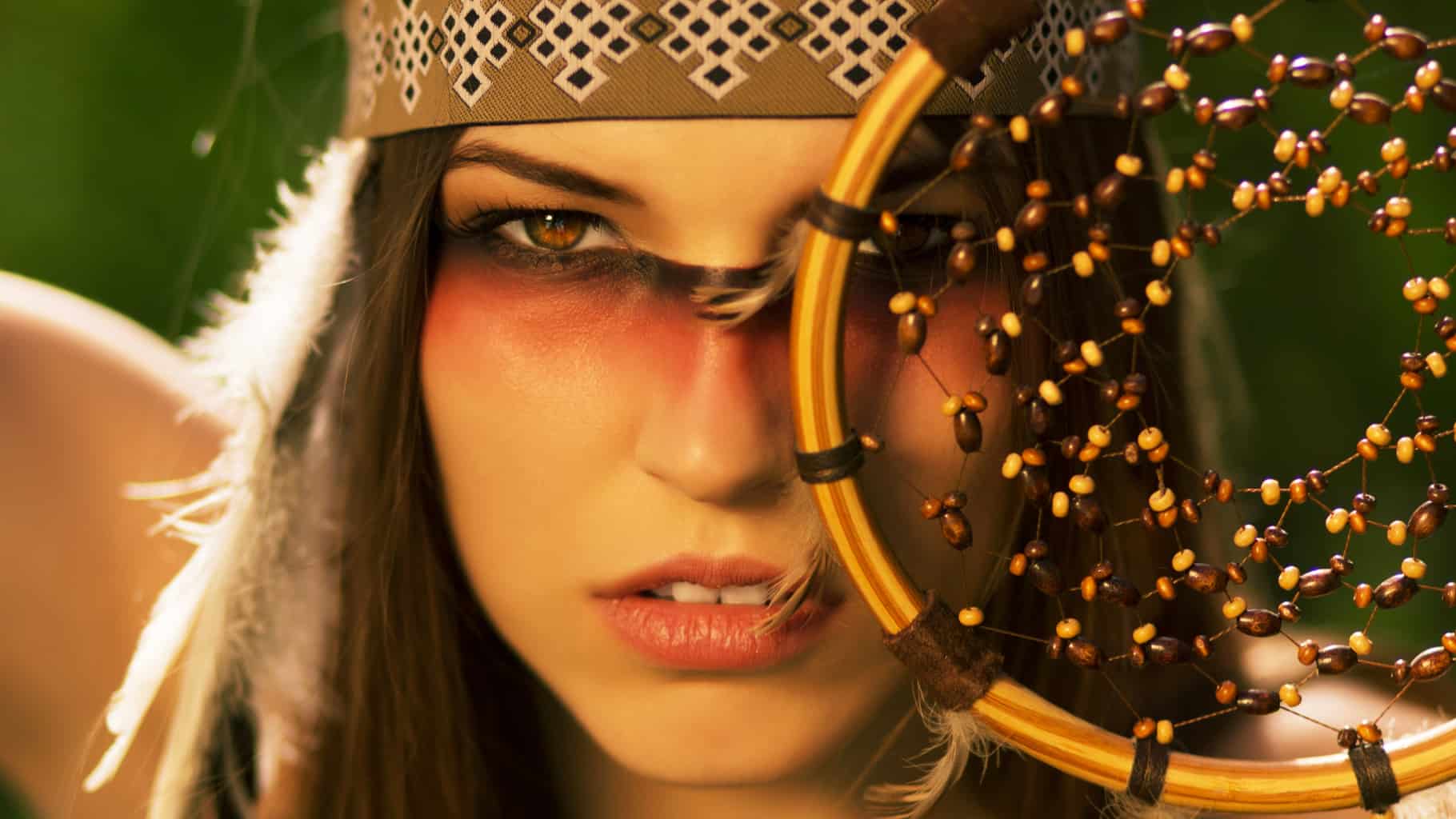
As the Ojibwe people grew in number they settled across larger areas of their native lands. Dreamcatchers were created by mothers and wives, to take the power and presence of the Spider Woman’s protection with the tribe wherever they traveled.
The bead in the central web of the sacred hoop of the dreamcatcher represents the Spider Woman and the safety she offered her people.
Dreamcatcher Tattoo Design

The dreamcatcher hoop provides a great canvas in which to incorporate other design elements if the wearer fancies something over and above a standard dreamcatcher tattoo.
Other possible additions to a dreamcatcher hoop include a crescent moon which echoes the protection whilst sleeping motif, colorful flowers, pentangles and the yin and yang sign.
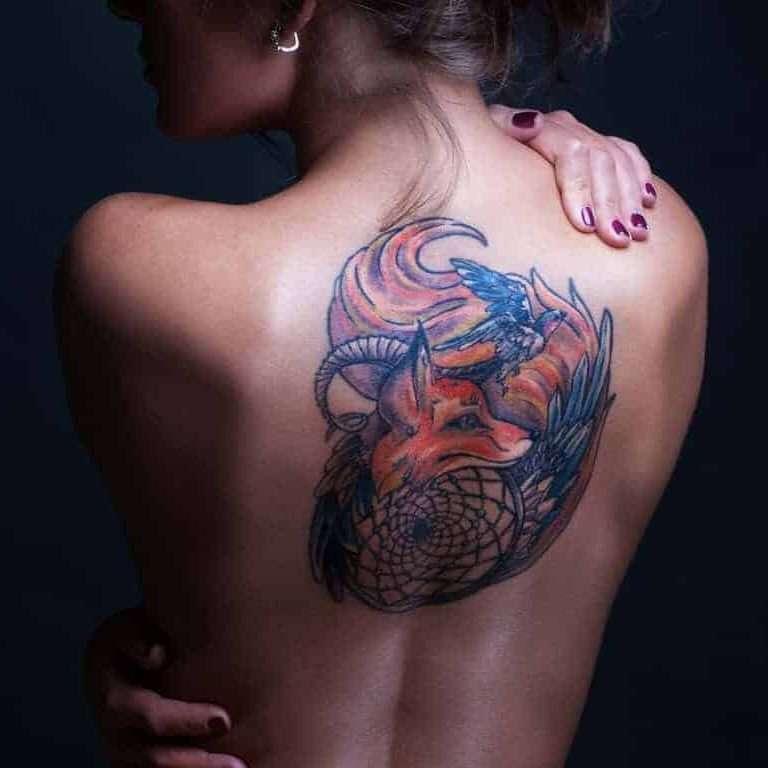
Some people choose to frame the dreamcatcher with an animal’s head either above or below. Wolves, horses and eagles are popular choices, probably because of the link with Native American culture.
Dreamcatcher tattoo colors are most often seen in the feathers and beads that hang from the bottom of the dreamcatcher hoop. It’s most common to see three feathers hanging from the hoop but some tattoos only feature one.
The choice and color of feathers chosen for the tattoo design are an opportunity for the tattoo wearer to add not just artistic flair to the design, but an added layer of meaning. This makes the tattoo even more significant for the wearer.
Feathers
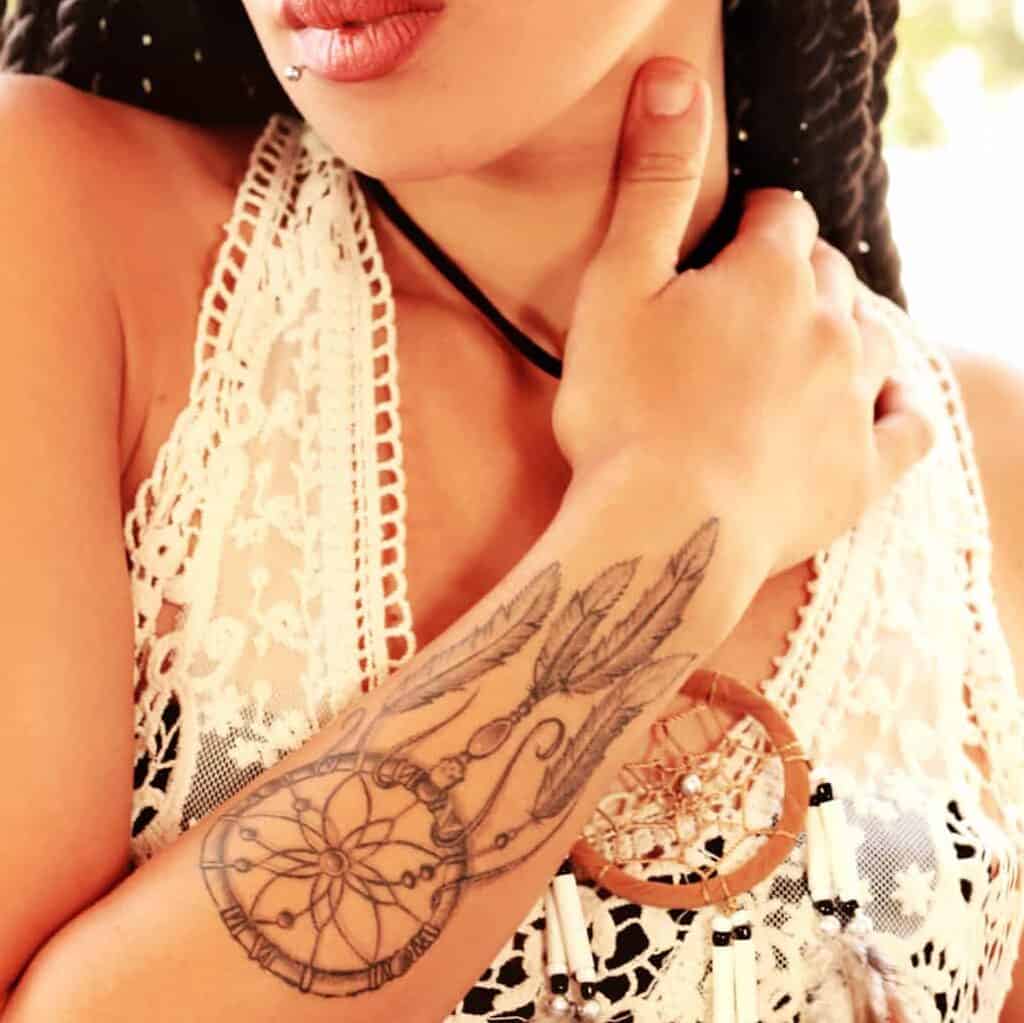
Feathers are symbolic of many things in different cultures. From messages from the afterlife to magical stories, feathers are rich in meaning. Native American tribal culture reflects this too, making a feather far more than something that a bird left behind.
Native Americans set great store in receiving a feather, seeing it as an honor and a gift. Depending on the type of bird feather the person has been given, the meaning can vary:
- Eagle feathers are the most esteemed and represent great courage.
- A red feather means that the person had been wounded in battle. This could make it a popular choice for the broken-hearted.
- A white dove feather symbolizes love and kindness.
- A black crow feather stands for skill and being free of past mistakes.
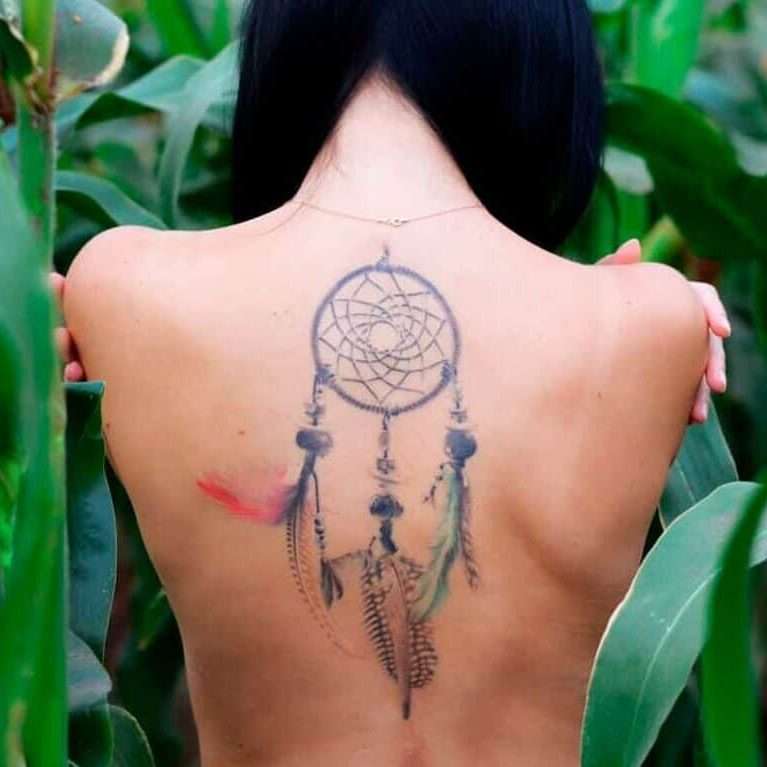
Colorful feathers make a great addition to a dreamcatcher tattoo design. Parrot feathers add a multi-colored element to the tattoo which may suit some tastes.
Other birds that have vibrant feathers that could be used as a design inspiration include green parakeets, kingfishers, hummingbirds or woodpeckers.
If pink is a favorite color, tropical flamingo feathers are an option. There is so much diversity in birds that a lot of fun can be had picking the feathers that are right for the tattoo design.
Body Location

Dreamcatchers look good in any size, which makes them a versatile tattoo choice suitable for all parts of the body. Smaller ones are striking on the underside of the wrists, a non-matching pair with one on each wrist is especially effective.
The circular shape of the hoop lends itself well to a location on the shoulder, with the feathers hanging down the bicep. They also work well on the thigh, providing the hoop part of the design is large enough.
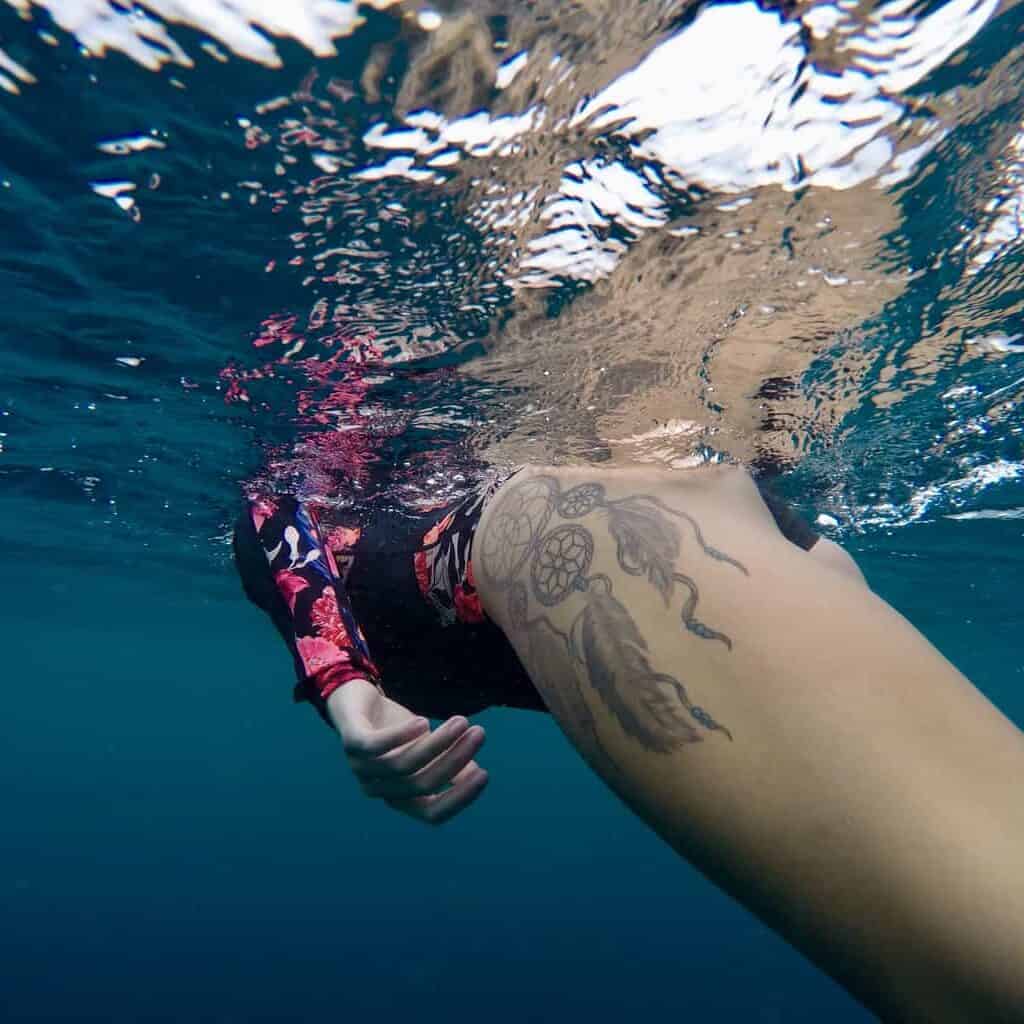
Larger dreamcatcher tattoos look incredible stretching from the nape of the neck down the back. The size of the back, also allows for the dreamcatcher to be set off with other tattoos around it, such as birds on a shoulder, or some meaningful words.
Whichever dreamcatcher tattoo design the wearer chooses, they can look forward to compliments from others and sweet dreams for the rest of their life.

